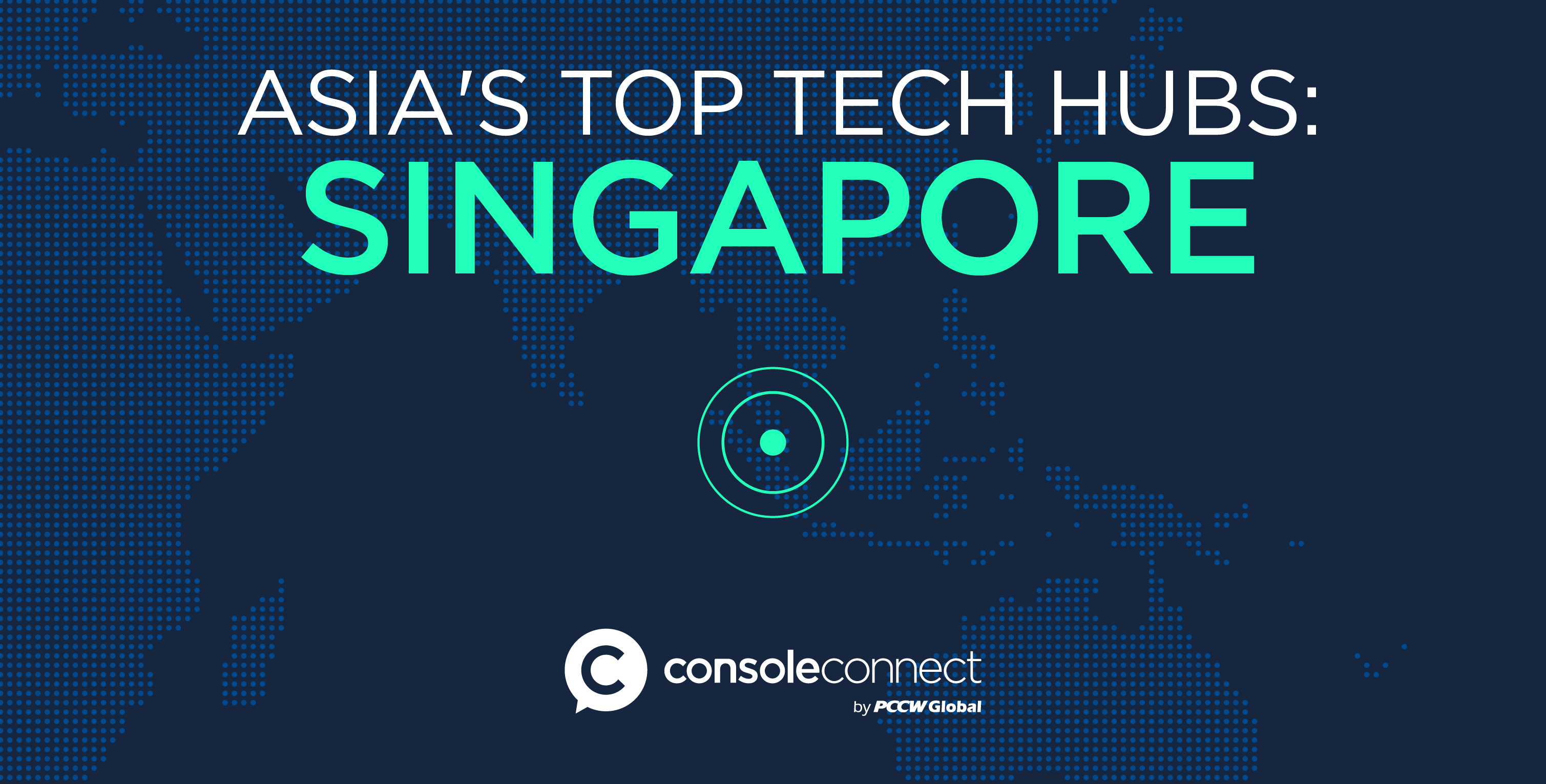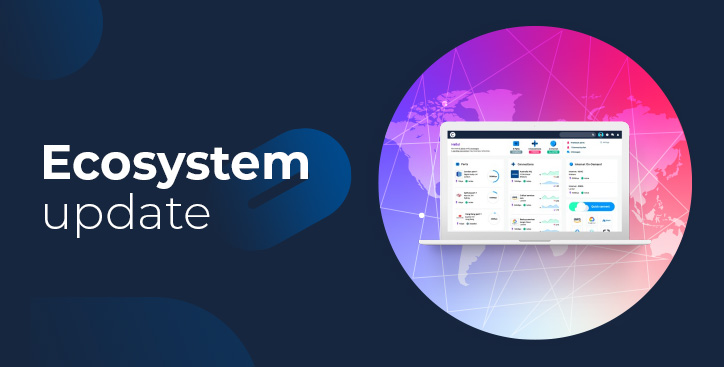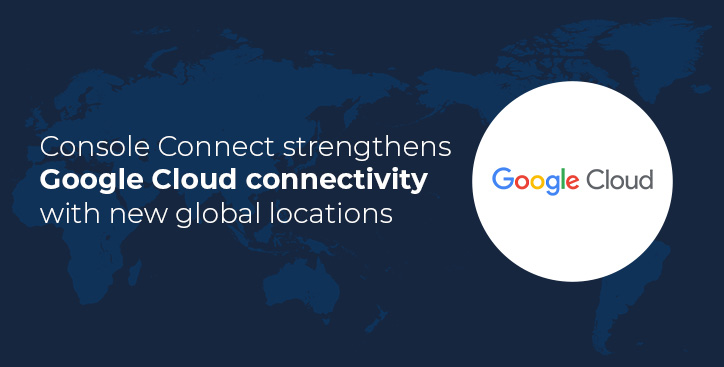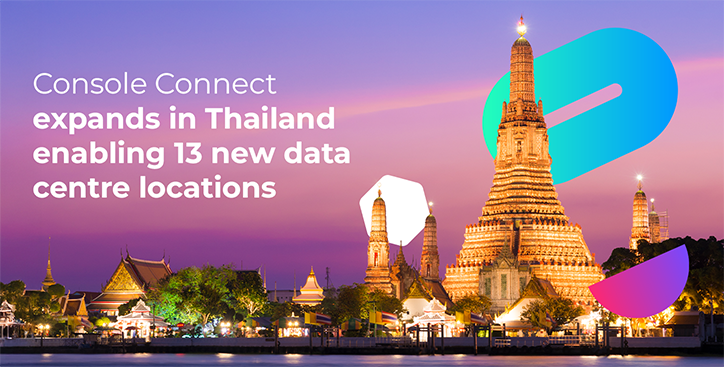Asia's Top Tech Hubs: Singapore
By Alex Hawkes|26 July, 2021

Singapore is well placed to serve the fast-growing markets of the Asia-Pacific region as well as act as a gateway to the rest of the world due to its long-standing role as a strategic link and important location for global investors.
With a dense concentration of enterprises, data centres and bandwidth providers, discover why Singapore is widely considered the most mature data centre market in South East Asia, and one of the most competitive in the world.
A gateway to Asia
Singapore has a long history as the gateway to Asia, not only due to its geographic position but also because of its attractiveness for financing and investment.
Singapore’s location at the crossroads of important trade lines has given it a strategic advantage as a hub for global industry, originally as a nexus for physical trade routes and now for digital connectivity, with more than 25 subsea cables landing on the island and connecting Singapore to every continent.
According to the Global Interconnection Index, published by Equinix Internet Exchange, internet traffic in Asia-Pacific has seen a record growth of 44% CAGR over the past five years to 2021. Furthermore, the trend in traffic growth has been led by Singapore, which over the past five years has emerged as one of the biggest internet exchange points (IXP) by size worldwide, growing at 53% CAGR.
With a stable government and a mature, business-friendly environment nurtured through economic policies, Singapore has also become a start-up hub with around US$300 million in funding made available for deep-tech start-ups in 2020. Its policies have also made it attractive for global organisations to grow their business in Singapore.
This rich and diverse ecosystem of innovation, talent and digital connectivity has helped Singapore take the crown as the leading data centre hub for the region with plenty of opportunities for connection and innovation.
An epicentre of data centres
Data centres are big business in Singapore, which counts dozens of high-end facilities in the city-state of just five million people and investors have recently shown an interest in submerged or submarine data centres that can be placed off the coast.
The Arcadis Data Centre Location Index 2021 ranked Singapore the second most attractive city in the world to build data centres. Meanwhile, Cushman & Wakefield’s 2021 Global Data Centre Market Comparison report ranked Singapore’s data centre market fifth - up one rank from 2020.
The Arcadis report recognised the state’s ability to attract major investments from the technology industry thanks to a well-educated workforce and stable government, making it a “natural colocation hub for serving markets across South-east Asia and India”.
9 Reasons for Singapore's success
- STRONG ENERGY INFRASTRUCTURE
Power capacity in Singapore is adequate and extremely stable, and recycled water is available for cooling systems. Network connectivity is excellent with direct fibre optic connectivity to every other region. - NO NATURAL DISASTERS
Singapore is fortunate to be located within an area that is not known for natural disasters, including flooding. - A KEY HUB FOR SUBSEA CABLES
Many of the top international subsea cables land in Singapore, making it one of the top submarine cable hubs in the world. The country is connected to countries in every continent through more than 20 subsea cables. - CRITICAL MASS OF DATA CENTRES
The appeal of the country has resulted in Singapore emerging as a top data centre hub not just for the region but for the world. There are currently more than 100 data centres in Singapore. According to Structure Research, the colocation market for Asia Pacific will grow at an expected compound annual growth rate of 12.2% through 2024 with much of the demand coming from global cloud providers, social media platforms, media content and video streaming, e-commerce platforms and banking. - PUBLIC CLOUD AVAILABILITY
Singapore has become an ideal location for public cloud providers to open a PoP and all the usual suspects have availability in the region including Alibaba Cloud, Amazon Web Services, Google Cloud, Microsoft Azure, Oracle Cloud, IBM Cloud and a host of others. - SKILLS AND WORKFORCE
The maturity of the Singaporean workforce and its skill set matches that of its economic environment. The country is strong in engineering skills and offers the opportunity to work in a sophisticated metropolis. This means it has an ample supply of workers to run its highly technical infrastructure. - STRONG ADHERENCE TO STANDARDS
Singapore is known as a location to adopt and adhere to key standards for data centre operation focused on environmental, security, and efficiency concerns. This includes the Personal Data Protection Act of 2012 (PDPA), the Technology Risk and Management (TRM) framework, the BCA-IMDA Green Data Centre Standard (SS 564), the Telecommunications Industry Association’s (TIA) ANSI/TIA 942-A is the telecommunications infrastructure standard for data centres, and the Multi-Tier Cloud Security (MTCS) Standard for Singapore (SS 584) for cloud providers. - BUSINESS-FRIENDLY ENVIRONMENT
With a reputation as one of the most business friendly countries in the world, Singapore regulations work in favour of business and tax rates are kept relatively low. - STABLE POLITICAL CLIMATE
The political climate in Singapore is stable, with an efficient administration and little to no corruption, making it an attractive place to do business with little chance of changing or surprising circumstances.




.jpg)




.jpg)